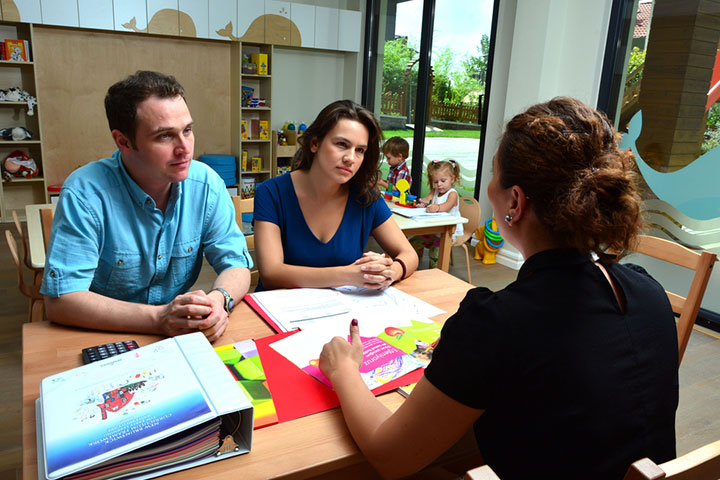
Image: Shutterstock
In today’s day and age, we have more parenting models and styles than we can keep track of. You’ve heard of the infamous tiger parents and helicopter parents. But have you ever come across the term jellyfish parents? If this has got you completely stumped, then we are here to shed some light on what this type of parenting is all about and what we can learn from it. After all, there are pros and cons to every style of parenting. Much like jellyfish, this parenting style is known to be boneless, flexible and practices the art of turning into the child. But it may also be too permissive for some kids and may lead them to be confused as to what the real role of a parent is. Curious to know more? Then keep on reading!
What Is Jellyfish Parenting?
Parents who practice jellyfish parenting believe in the ideology that their kids are overstimulated and are often shuttled from one activity to another. These parents theorize that the real reason children go from taking lessons to doing activities and then sports is not to facilitate well rounded development or even to encourage the child to pursue a hobby they are passionate about. It is mostly to fulfill the social pressures that parents often feel with regards to their kids. Now, every parent wants their child to be successful but that doesn’t mean they need to know how to play soccer, the cello and speak 5 foreign languages fluently in order to do so. The entire idea behind jellyfish parenting is simply learning to listen to what your child wants and needs and taking your cues from them.
This may sound incredible, but that’s until you realize that most kids don’t ever want to do anything productive or challenging. But the point is to ask yourself if your child is doing something for you, for their own benefit or for themselves? And this can be extremely hard to navigate. Because sometimes you do have to sign your child up for things that they won’t necessarily like but need. This may be a tutor in math to pick up their grades, or putting them in a group sport so that they learn how to interact with other children. But on the other hand, sometimes you do need to concede and let them drop out of piano lessons if it’s something they show absolutely no interest in. Contrary to popular belief, putting your child in classes meant for creative individuals will not make them any more creative than they naturally are. In fact, it might just frustrate them. Finding this fine line between listening to your kid’s needs but still looking out for their best interests lays jellyfish parenting.
What Can We Learn From Jellyfish Parents?
1. Not Giving Into Societal Pressures
Let’s be honest, this one is easier said than done. When was the last time people looked down on you because your kids didn’t sign up for summer camp, or didn’t make the football team or sat out of a recital? Parents bear the brunt of everything their kids do and don’t do, no matter how valid the reason may be. And no matter what it is that they are doing, something’s always wrong. You just can’t seem to win or catch a break. So, parents often cave and decide to overstimulate their kids even when it doesn’t benefit them. Jellyfish parents have realized that this is a trap. Pleasing everyone around you while trying to raise your kids in a way that’s healthy for them and your family is impossible. So they’ve decided to not give into societal pressures and we think we should take a page out of this book.
2. Putting The Kids First
Sure all parents make sacrifices to put their kids first, but jellyfish parents do this in thought and in deeds. They don’t force their kids into things simply because they want to live vicariously through them or because of a passing trend. If their child doesn’t particularly gravitate towards something, they are okay with it. After all, not everyone can be Picasso or Beethoven. Some kids just don’t have a burning passion for one specific thing and that’s fine.
3. Being Honest With Themselves
It takes some real introspection and self awareness to realize that you’re making your kids do things for the wrong reasons. Jellyfish parents learn to be honest with themselves in every situation and don’t project themselves onto their kids. A feat that’s hard to accomplish.
So what do you think about jellyfish parenting? Would you like to try it out or are you happy with the parenting style you have now? Let us know in the comments section and happy parenting!















